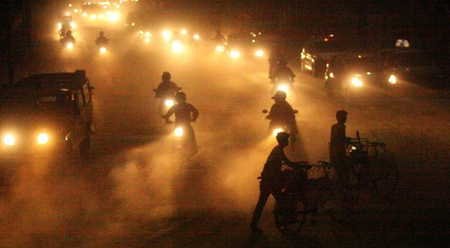A new World Bank report, “Towards Clean Air in Nepal: Benefits, Pollution Sources, and Solutions,” released on Tuesday, reveals that air pollution is the leading cause of death and disability in Nepal, reducing the average Nepali’s life expectancy by 3.4 years and leading to approximately 26,000 premature deaths annually. The report identifies the Kathmandu Valley and the Terai region as the country’s primary air pollution hotspots, with no significant improvement seen in the past decade.
Beyond the severe health consequences, the report highlights the significant economic impact of poor air quality, estimating it to exceed six percent of Nepal’s Gross Domestic Product (GDP) each year. This includes reduced labor productivity due to increased health-related absences and impaired cognitive function, alongside negative effects on the tourism and aviation sectors.
Nepal’s Minister for Forests and Environment, Ain Bahadur Shahi Thakuri, emphasized the government’s commitment to tackling the issue: “Clean air and economic growth are not in conflict. In fact, the cost of inaction on pollution is far greater than the cost of taking bold steps today. From setting stricter industrial emission standards to promoting electric transport, the government is committed to cleaning Nepal’s air.”
The report stresses that the multi-sectoral and multi-regional nature of air pollution necessitates a comprehensive approach, addressing vehicle and industrial emissions, household cooking, forest fires, and transboundary pollution.
David Sislen, World Bank Country Division Director for Maldives, Nepal, and and Sri Lanka, reaffirmed the World Bank’s dedication to assisting Nepal in strengthening its air quality improvement programs through financial and technical aid, along with capacity-building support. He stated the World Bank’s commitment to leveraging its global knowledge and experience to ensure impactful and sustainable efforts towards cleaner air in Nepal.
The report further details the extensive health impacts of air pollution, contributing to a significant percentage of various diseases: 75% of chronic obstructive pulmonary disease cases, 46% of strokes, 44% of ischemic heart disease, 41% of lower respiratory infections, 38% of lung cancer, 30% of neonatal issues (such as low birth weight and preterm birth), and 20% of diabetes.

